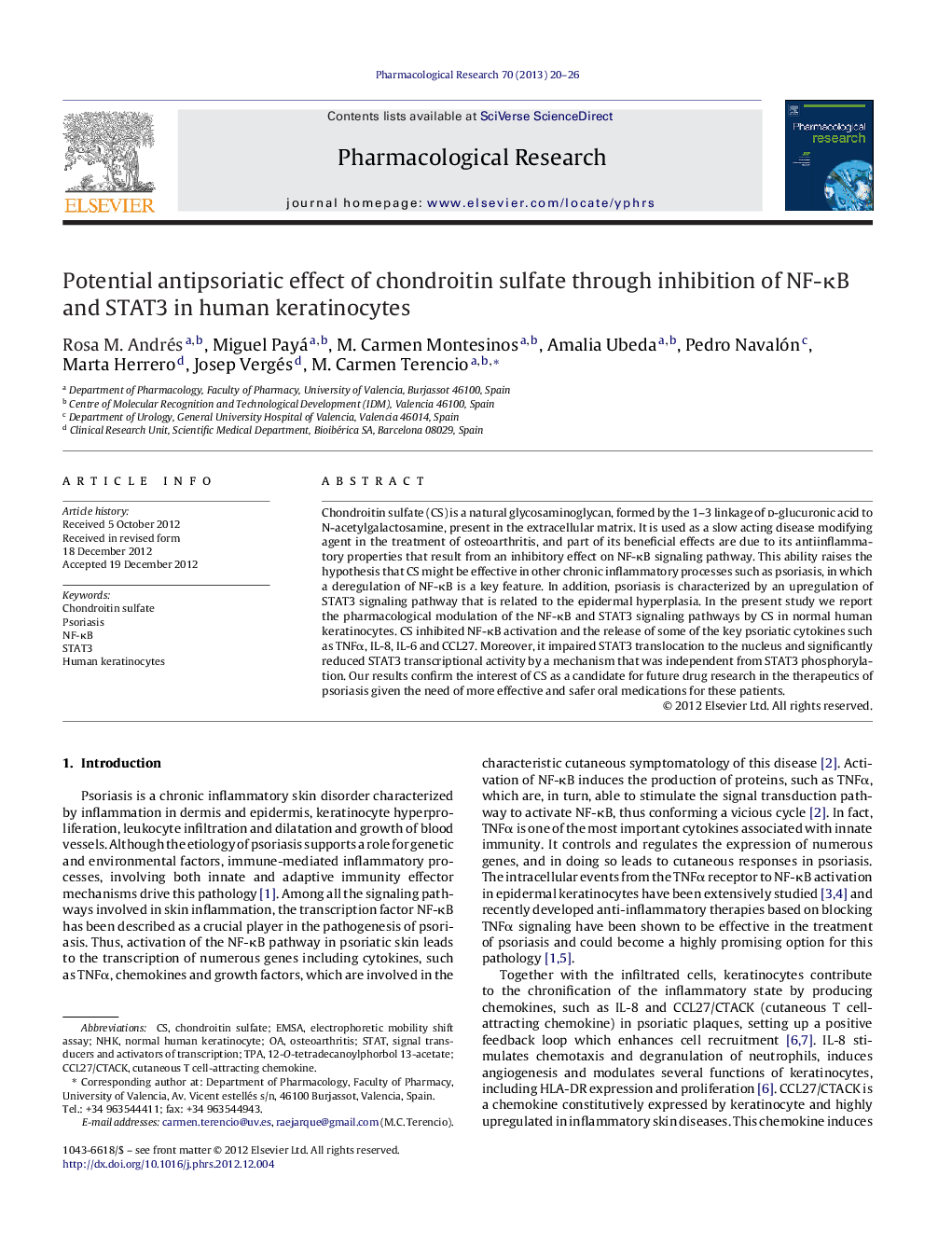| Article ID | Journal | Published Year | Pages | File Type |
|---|---|---|---|---|
| 2561342 | Pharmacological Research | 2013 | 7 Pages |
Chondroitin sulfate (CS) is a natural glycosaminoglycan, formed by the 1–3 linkage of d-glucuronic acid to N-acetylgalactosamine, present in the extracellular matrix. It is used as a slow acting disease modifying agent in the treatment of osteoarthritis, and part of its beneficial effects are due to its antiinflammatory properties that result from an inhibitory effect on NF-κB signaling pathway. This ability raises the hypothesis that CS might be effective in other chronic inflammatory processes such as psoriasis, in which a deregulation of NF-κB is a key feature. In addition, psoriasis is characterized by an upregulation of STAT3 signaling pathway that is related to the epidermal hyperplasia. In the present study we report the pharmacological modulation of the NF-κB and STAT3 signaling pathways by CS in normal human keratinocytes. CS inhibited NF-κB activation and the release of some of the key psoriatic cytokines such as TNFα, IL-8, IL-6 and CCL27. Moreover, it impaired STAT3 translocation to the nucleus and significantly reduced STAT3 transcriptional activity by a mechanism that was independent from STAT3 phosphorylation. Our results confirm the interest of CS as a candidate for future drug research in the therapeutics of psoriasis given the need of more effective and safer oral medications for these patients.
Graphical abstractFigure optionsDownload full-size imageDownload high-quality image (171 K)Download as PowerPoint slide
